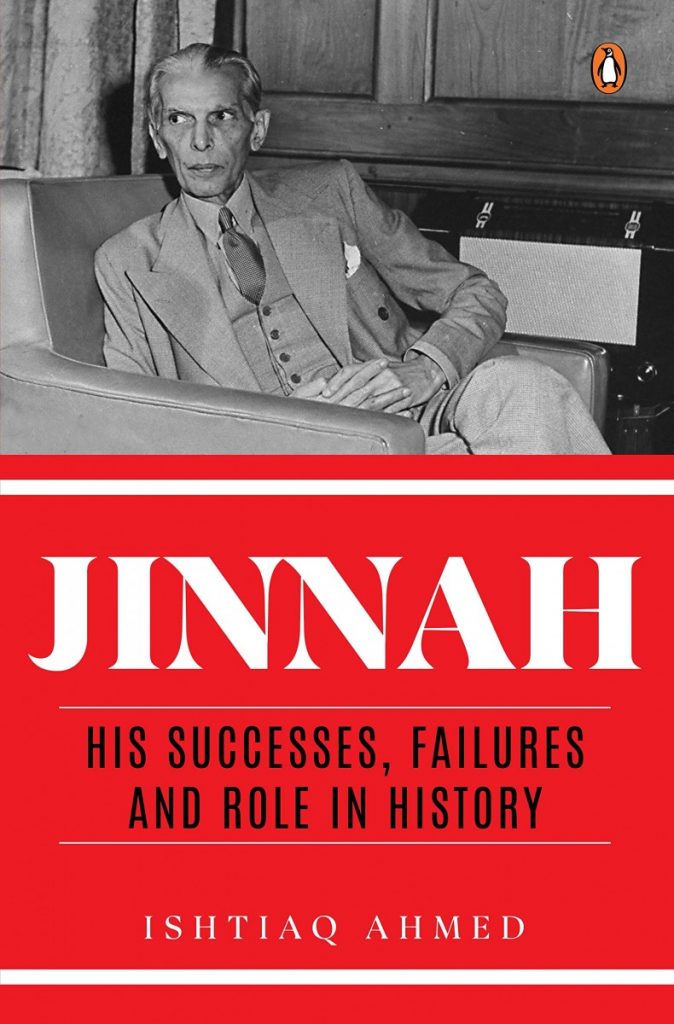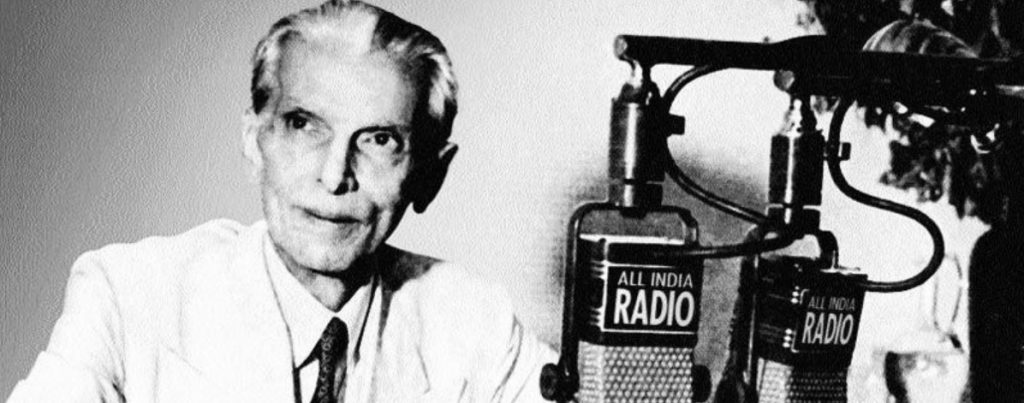The main event on 22 March 1940 was the marathon presidential address delivered by Jinnah. He began with an upbeat review of the popularity of the Muslim League since the last session of the Muslim League in Patna in 1938. He told the audience that the Muslim League had established provincial leagues and won all by-elections. He emphasized the importance of mobilizing Muslim women into the growing movement of Muslim assertiveness. He presented a dismal picture of the Muslims during Congress rule. He said that the Congress was now regretting the resignation of their ministries, but for the Muslims, it was a great relief. Jinnah then frankly admitted that Congress intransigence had had the unintended consequence of making the British government turn to him for help. He remarked:
After the war was declared, the Viceroy [Lord Linlithgow] naturally wanted help from the Muslim League. It was only then that he realised that the Muslim League was a power. For it will be remembered that up to the time of the declaration of the war, the Viceroy never thought of me but of Gandhi and Gandhi alone. I have been the leader of an important Party in the Legislature for a considerable time, larger than the one I have the honour to lead at present, the Muslim League Party in the Central Legislature. Yet the Viceroy never thought of me before. Therefore, when I got this invitation from the Viceroy along with Mr. Gandhi, I wondered within myself why I was so suddenly promoted, and then I concluded that the answer was the ‘All-India Muslim League’ whose President I happen to be . . . our position is this. We stand unequivocally for the freedom of India. But it must be freedom of all India and not freedom of one section or, worse still, of the Congress caucus—and slavery of Mussalmans and other minorities.

Ishtiaq Ahmed
Jinnah: His Successes, Failures and Role in History
Penguin Viking (September 2020)
Comparison with Gandhi had become an obsession with Jinnah, which, it seems, dictated his launching of the two-nation theory as the ideological basis for Muslim nationalism and the demand for separate Muslim states. Jinnah was brutally candid, saying that the new relationship which was being forged between him and the British was dictated by the latter’s instrumentalist need to checkmate the Congress’s claim to represent all Indians.
Jinnah reviewed several proposals of Congress leaders to accommodate Muslim concerns while simultaneously critiquing the British idea of a federal but united India as laid down in the 1935 Act. As expected, special contempt for Gandhi, whom—amid laughter and clapping—he took to task for demanding that the British should set India free and transfer power to the elected representative of the Constituent Assembly, before Congress would extend support to the war. Next, he took up Gandhi’s statement that the Congress was willing to accept that the Constituent Assembly be elected on the basis of adult franchise or as low a franchise as possible—whatever is agreed. Gandhi also had proposed that the ‘assembly will of course satisfy the minorities’ legitimate interests and that if they were not satisfied then he was willing that a “tribunal of the highest character and most impartial should decide the dispute”.
Jinnah retorted:
Apart from all that, suppose we do not agree as to the franchise according to which the Central Assembly is to be elected, or suppose the solid body of Muslim representatives do not agree with the non-Muslim majority in the Constituent Assembly, what will happen? … Of course, Mr. Gandhi says that the constitution will decide whether the British will disappear, and if so to what extent. In other words, his proposal comes to this: First, give me the declaration that we are a free and independent nation, then I will decide what I should give you back… In the event of there being a disagreement between the majority of the Constituent Assembly and the Mussalmans … who will appoint the tribunal? And suppose an agreed tribunal is possible and the award is made and the decision given, who will, may I know, be there to see that this award is implemented or carried out in accordance with the terms of that award?
Next, Jinnah reviewed some other proposals. About C. Rajagopalachari’s idea that ‘the only panacea for Hindu–Muslim unity is the joint electorates’, Jinnah dismissed it with the following quip: ‘This is his prescription as one of the great doctors of the Congress organisation!’

Jinnah announcing the creation of Pakistan on All India Radio. Photo: Wikimedia Commons
He then quoted another leading Congress member Rajendra Prasad’s proposal: ‘If Britain would concede our right of self-determination, surely all these differences would disappear.’ Jinnah wondered how the differences would disappear because Prasad had simply assumed it to be self-evident. He continued to quote Prasad:
But so long as Britain remains and holds power, the differences would continue to exist. The Congress has made it clear that the future constitution would be framed not by the Congress alone but by representatives of all political parties and religious groups. The Congress has gone further and declared that the minorities can have their representatives elected for this purpose by separate electorates, though the Congress regards separate electorates as an evil. It will be representative of all the peoples of this country, irrespective of their religion and political affiliations, who will be deciding the future constitution of India, and not this or that party. What better guarantees can the minorities have?
Jinnah retorted, ‘So according to Babu Rajendra Prasad, the moment we enter the Assembly we shall shed all our political affiliations, and religions, and everything else. This is what Babu Rajendra Prasad said as late as 18th March, 1940.’
Again, returning to Gandhi, he took up his statement of 20 March 1940 in which Gandhi had said: ‘To me, Hindus, Muslims, Parsis, Harijans, are all alike… I cannot be frivolous.’ To that, Jinnah retorted, ‘But I think he is frivolous.’ Continuing with Gandhi, he quoted him as saying, ‘I cannot be frivolous when I talk of Quaid-i-Azam Jinnah. He is my brother.’ Jinnah made fun of that remark by saying, ‘The only difference is this: that brother Gandhi has three votes and I have only one vote.’ The statement caused a lot of laughter.
Jinnah went on:
He is fighting the British. But may I point out to Mr. Gandhi and the Congress that you are fighting for a Constituent Assembly which the Muslims say they cannot accept; which, the Muslims say, means three to one; about which the Mussalmans say that they will never be able, in that way by the counting of heads come to an agreement … why does not Mr. Gandhi honestly now acknowledge that the Congress is a Hindu Congress, that he does not represent anybody except the solid body of Hindu people? Why should not Mr. Gandhi be proud to say, ‘I am a Hindu. Congress has solid Hindu backing?’ I am not ashamed of saying that I am a Mussalman. Why then all this camouflage? Why all these machinations? … Why not come as a Hindu leader proudly representing your people, and let me meet you proudly representing the Mussalmans? (Hear, hear and applause.)
Clearly, neither universal adult franchise nor an agreed tribunal was acceptable to Jinnah, because he was determined to take a negative stand to whatever Gandhi and the Congress leaders proposed. It is to be noted that adult suffrage was never granted by the British, while both the Congress and the Muslim League had in their programmes demanded it. Jinnah was now opposing any suggestion which would lead to a settlement with the Congress for power-sharing in a united India without the British. He wanted the British to pledge the right of self-determination to Muslims on the grounds that they were a nation and not a minority. It is important to underline that on 22 March 1940 Jinnah was solid as a rock in his demand for Partition to create separate Muslim states, which came to be known by the generic name of Pakistan, covering constellations consisting of several, two and one Muslim state.

Muhammad Ali Jinnah and M.K. Gandhi. Photo: Wikimedia Commons, public domain
Negotiations with the British
Next, Jinnah took up the negotiations which were going on with the British. The important points on which he had demanded assurances were: firstly, that no declaration should be made by the government about the future Constitution of India without the approval of the Muslim League, and without its approval and consent no settlement of any question should be made with any party behind their back; secondly, the British should ‘meet the demands of the Arabs in Palestine’; and thirdly, he said that he was not opposed to Indian troops being sent abroad but he wanted the British government to give the League the assurance that Indian troops would not be used against any Muslim country or Muslim power.
The first point was Jinnah’s price for the Muslim League supporting the war effort. Concretely, the war effort consisted of help in recruiting soldiers into the Indian Army. That role was already being played in the Punjab by the PUP, but the reach of the Muslim League to the Muslims extended far beyond the rural areas of the Punjab where the unionists had their strength. In urban Punjab and the rest of India, it was the Muslim League, a national- level party which alone could help in the recruitment of Muslim soldiers.
The third point on which Jinnah wanted British assurances was that Indian soldiers would not be used against a Muslim power. Turkey had wisely decided to remain neutral, and elsewhere most of the Muslim world was under either British or French colonial rule. Both imperial powers had Muslims fighting for them as soldiers.
Ishtiaq Ahmed is professor emeritus of political science at Stockholm University and visiting professor, Government College University, Lahore. He is the author of several books including Pakistan: The Garrison State-Origins, Evolution, Consequences (1947-2011).
Excerpted with permission from Ishtiaq Ahmed’s book Jinnah: His Successes, Failures and Role in History, Penguin Viking (September 2020).
